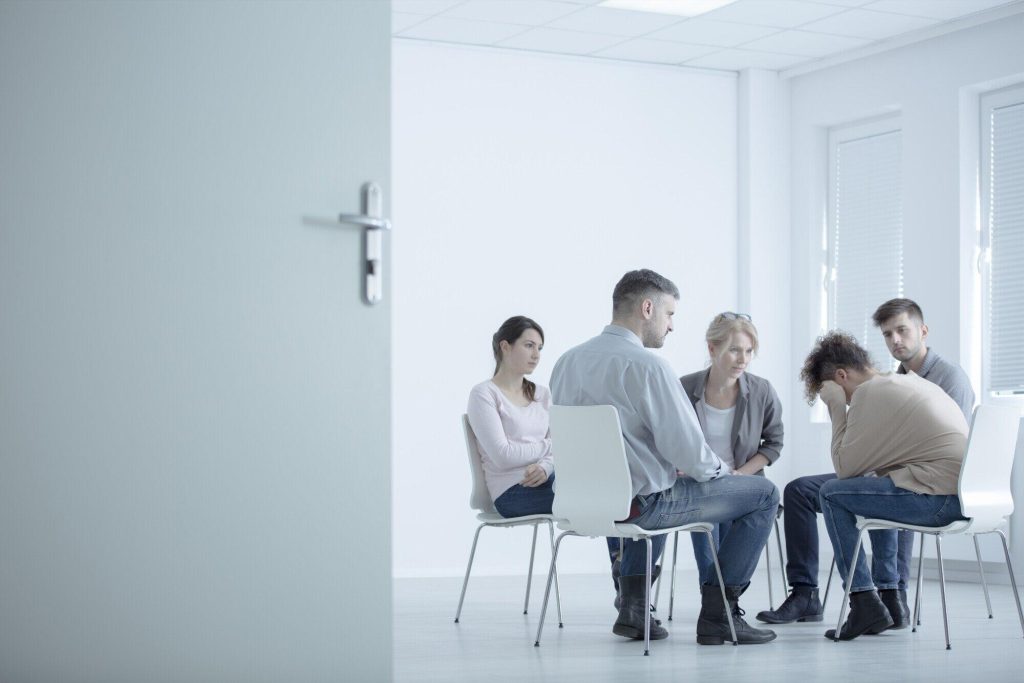Addiction recovery is a life-changing journey that requires the right support and care. A good rehabilitation program provides individuals with the tools they need to heal and grow. It helps them understand their struggles and build a new, healthy life.
These programs offer care, support, and hope every step of the way. With the right treatment and guidance, anyone can move toward lasting recovery and a brighter future. Each small step in addiction recovery brings strength and promotes real change.
Understanding the Purpose of Rehabilitation
Rehabilitation programs help people break free from addiction and start a new chapter in life. They focus on healing both the body and mind to support complete recovery. The primary goal is to teach healthier habits and coping skills for a better future.
These programs create safe and structured environments for healing. People can step away from harmful routines and focus on recovery. Trained staff guide every step, making sure that patients get the help they need.
Effective rehabilitation methods work because they address the root causes of addiction. This may include trauma, stress, or emotional pain. By focusing on these issues, the program helps to build a strong foundation for change.
The Importance of Personalized Treatment Plans
Every person’s addiction story is unique. That’s why personalized rehab plans are essential in recovery. These plans match the type of care with the person’s needs and goals.
Some people need medical help to manage withdrawal. Others may need therapy to deal with emotional wounds. Each plan adjusts to what works best for the individual.
A personalized approach increases the chances of success. It allows the program to focus on areas that need the most care. This makes recovery more comfortable, effective, and meaningful.
Addressing Mental Health During Recovery
Many people with addiction also struggle with mental health issues. These might include anxiety, depression, or trauma. Treating both addiction and mental health at the same time leads to better results.
Mental health restoration is a big part of successful recovery. It helps people rebuild confidence, self-control, and inner peace. When the mind is stable, staying sober becomes easier.
Therapists and counselors teach coping skills to manage stress and emotions. These lessons are useful long after leaving the program. A clear mind supports a stronger, longer-lasting recovery.
The Power of Group and Individual Therapy
Therapy helps people understand the reasons behind their addiction. It teaches them to handle triggers and build better habits. Both group and individual therapy are key to recovery.
In group therapy, people share their stories and support one another. This builds trust and reminds them they are not alone. Shared experiences can create hope and strength.
Individual therapy focuses on personal challenges and growth. It gives people a safe space to open up and learn new ways to heal. Together, these sessions promote balance and self-awareness.
Holistic Approaches for Complete Healing
Holistic addiction treatment looks at the whole person: mind, body, and spirit. It combines traditional therapy with wellness activities like yoga, art, and meditation. These help people find calm and focus during recovery.
This approach encourages self-care and emotional balance. It reminds people that healing is not just about stopping drug or alcohol use. It is also about building a healthy, peaceful life.
Holistic methods reduce stress and promote lasting change. They help people connect with themselves and discover new ways to feel strong. This type of healing supports recovery on every level.
Building a Supportive Community
Support is a vital part of addiction recovery. Having people who care can make a big difference. Group sessions, sponsors, and recovery communities offer encouragement and understanding.
A strong support system helps people stay accountable. It gives them someone to call when they feel weak or unsure. This connection helps prevent relapse and builds confidence.
Community programs and peer support groups are powerful tools. They help people share struggles and celebrate victories together. A sense of belonging keeps motivation alive throughout recovery.
The Role of Family in the Healing Process
Family members play an important role in recovery. Their support helps build trust and understanding. With the right guidance, families can learn how to help their loved one heal.
Some programs include family therapy sessions. These sessions improve communication and rebuild relationships. Healing as a family makes recovery stronger and more lasting.
Families also learn about addiction and its effects. This helps them provide better emotional support.
Education and Life Skills Training
Rehabilitation is not only about quitting substances. It also focuses on learning skills for a better life. Education programs teach problem-solving, time management, and communication.
These life skills help people handle challenges after treatment. They build confidence and independence. The goal is to prepare for a successful and stable future.
Learning new skills gives people purpose and direction. It helps them stay busy and positive. This training supports long-term sobriety and personal growth.
Focusing on Long-Term Recovery
Recovery does not end after leaving rehab. Ongoing care is key to staying sober and healthy. Long-term sobriety support helps people adjust to life outside the program.
Aftercare may include therapy, group meetings, or wellness activities. These provide continued guidance and structure. Staying connected to support systems reduces the risk of relapse.
Lasting recovery solutions focus on creating a stable, balanced lifestyle. They help people manage stress and avoid triggers. This steady progress keeps recovery strong over time.
Choosing the Right Rehabilitation Center
The right program can make all the difference in recovery. It’s important to choose a center that matches your needs and goals. You can explore Virginia addiction rehab for professional guidance and personalized care options.
Good rehab centers offer experienced staff, safe environments, and proven treatment methods. They focus on the person, not just the addiction. Comfort, privacy, and compassion are also important.
Researching programs before joining helps ensure the best results. The right choice can bring hope and long-term healing. Recovery starts with finding a place that truly understands your needs.
Embracing a New Life Through Effective Addiction Recovery Programs
Effective rehabilitation programs help people regain control of their lives. They offer structure, care, and tools for lasting recovery. With the right mix of treatment, support, and learning, anyone can find hope again.
Addiction recovery takes time, but every step forward brings healing and strength. When people commit to change and find the right program, recovery becomes not just possible – it becomes a new beginning.
Did you find this article helpful? Check out the rest of our site for more great content!







